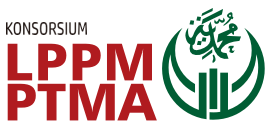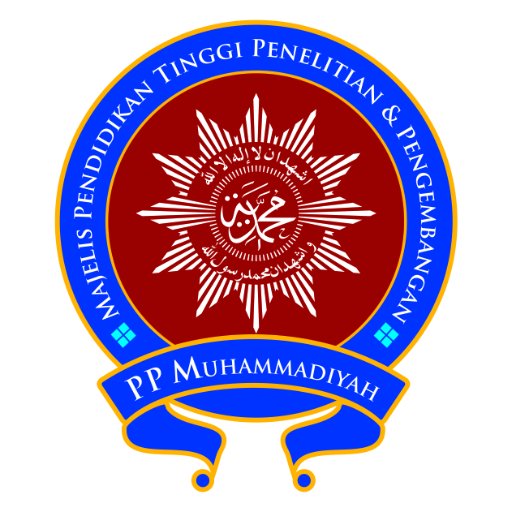The Effect of Mother's Knowledge about Child Supplementation on Giving Supplementation During the Covid-19 pandemic
DOI:
https://doi.org/10.53017/ujhs.135Keywords:
Mother's knowledge, Supplementation, Covid-19Abstract
Covid-19 cases in the group of children in Indonesia are increasing, reaching around 11-12%. Covid-19 cases in children in Indonesia are the highest cases in the world. One of the efforts to prevent the transmission of COVID-19 in children is to increase immunity and health in children, which can be done by giving supplements to children. One of the factors that influence the provision of supplements to children is the mother's knowledge. This study uses quantitative analysis by analyzing the effect of the mother's level of knowledge about giving supplementation to children with supplementation to children. The subjects in this study were mothers who had children aged 0 months to 5 years. The sampling technique used was purposive sampling, so the number of samples in this study was 107 mothers. The instrument in this study used a questionnaire in the form of a google form which had been tested for validity and reliability. The result of this study is the influence of a mother's knowledge on the provision of supplementation to children with a p-value of 0.004. So health workers, especially midwives, have an important role in providing information to mothers and families to maintain health during the COVID-19 pandemic.
Downloads
References
Kementrian Kesehatan RI, “Lindungi Anak dan Remaja Kita dari Varian Baru Covid-19,” 2021. .
N. Bustamam and S. Wahyuningsih, “Bulan Penimbangan Balita Dan Pemberian Vitamin a Di Posyandu Limo Depok Pada Pandemi Covid-19,” BERNAS: Jurnal Pengabdian Kepada Masyarakat, vol. 2, no. 1, pp. 152–157, 2021, doi: 10.31949/jb.v2i1.665.
BPOM RI, Pedoman Penggunaan Herbal dan Suplemen Kesehatan dalam Menghadapi COVID-19 di Indonesia, 1st ed. Jakarta, 2020.
A. Amirullah, A. T. Andreas Putra, and A. A. Daud Al Kahar, “Deskripsi Status Gizi Anak Usia 3 Sampai 5 Tahun Pada Masa Covid-19,” Murhum?: Jurnal Pendidikan Anak Usia Dini, vol. 1, no. 1, pp. 16–27, 2020, doi: 10.37985/murhum.v1i1.3.
N. Pratiwi Dyah, Kusumanti Setyorini, “Hubungan Tingkat Pengetahuan Ibu Tentang Vitamin A Dengan Ketepatan Dalam Pemberian Vitamin A Pada Balita Di Wilayah Kerja Puskesmas Sruwohrejo Kecamatan Butuh Kabupaten Purworejo,” Jurnal Komunikasi Kesehatan, vol. 9, no. 2, pp. 29–37, 2018.
Budiman and A. Riyanto, Kapita Selekta Kuisioner Pengetahuan Dan Sikap Dalam Penelitian Kesehatan. Jakarta: Salemba Medika, 2013.
S. Notoatmodjo, Metodologi Penelitian Kesehatan. Jakarta: Rineka Cipta, 2015.
M. Ekawaty M., S. E. S. Kawengian, and N. H. Kapantow, “Hubungan antara pengetahuan ibu tentang gizi dengan status gizi anak umur 1-3 tahun di Desa Mopusi Kecamatan Lolayan Kabupaten Bolaang 162 Mongondow Induk Sulawesi Utara,” Jurnal e-biomedik, vol. 3, no. 2, pp. 609–614, 2015.
Kementrian Kesehatan RI, “KEPUTUSAN MENTERI KESEHATAN REPUBLIK INDONESIA NOMOR HK.01.07/MENKES/320/2020 TENTANG STANDAR PROFESI BIDAN,” no. 1, pp. 1–90, 2020.
M. Chalid, S. Wahyuni, and A. Islam, “Gambaran umum program 1000 hari awal kehidupan. Makasar,” Universitas Hasanudin, 2015.
J. E. Arsenault, D. López de Romaña, M. E. Penny, M. D. Van Loan, and K. H. Brown, “Additional zinc delivered in a liquid supplement, but not in a fortified porridge, increased fat-free mass accrual among young Peruvian children with mild-to-moderate stunting.,” The Journal of nutrition, vol. 138, no. 1, pp. 108–114, Jan. 2008, doi: 10.1093/jn/138.1.108.
W. H. O. (WHO), “Guideline: Daily Iron Supplementation in Infants and Children,” Geneva, 2016.
S. Rerksuppaphol and L. Rerksuppaphol, “Effect of zinc plus multivitamin supplementation on growth in school children.,” Pediatrics international?: official journal of the Japan Pediatric Society, vol. 58, no. 11, pp. 1193–1199, Nov. 2016, doi: 10.1111/ped.13011.
M. McDonagh, I. Blazina, T. Dana, A. Cantor, and C. Bougatsos, Routine Iron Supplementation and Screening for Iron Deficiency Anemia in Children Ages 6 to 24 Months: A Systematic Review to Update the U.S. Rockville (MD), 2015.
D. K. Olney et al., “Young Zanzibari children with iron deficiency, iron deficiency anemia, stunting, or malaria have lower motor activity scores and spend less time in locomotion.,” The Journal of nutrition, vol. 137, no. 12, pp. 2756–2762, Dec. 2007, doi: 10.1093/jn/137.12.2756.
UNICEF, “The State of the World’s Children 2019. Children, Food and Nutrition: Growing well in a changing world.,” New York., 2019.
R. Fithriyana, “Hubungan Pengetahuan Ibu Tentang Vitamin A Dengan Pemberian Vitamin A Pada Balita Di Desa Kuantan Sako Tahun 2016,” Jurnal Doppler Universitas Pahlawan Tuanku Tambusai, vol. 2, no. 1, pp. 50–57, 2018.
M. Hackett, H. Melgar-Quiñonez, and M. C. Alvarez, “Household food insecurity associated with stunting and underweight among preschool children in Antioquia, Colombia.,” Revista panamericana de salud publica = Pan American journal of public health, vol. 25, no. 6, pp. 506–510, Jun. 2009, doi: 10.1590/s1020-49892009000600006.
S. Munawaroh, “Pola asuh memengaruhi status gizi balita,” Jurnal Keperawatan, vol. 6, no. 1, pp. 44–50, 2015.
M. Low, A. Farrell, B.-A. Biggs, and S.-R. Pasricha, “Effects of daily iron supplementation in primary-school-aged children: systematic review and meta-analysis of randomized controlled trials.,” CMAJ?: Canadian Medical Association journal = journal de l’Association medicale canadienne, vol. 185, no. 17, pp. E791-802, Nov. 2013, doi: 10.1503/cmaj.130628.
S. Sachdeva, A. Amir, S. Alam, Z. Khan, N. Khalique, and M. A. Ansari, “Global developmental delay and its determinants among urban infants and toddlers: a cross sectional study.,” Indian journal of pediatrics, vol. 77, no. 9, pp. 975–980, Sep. 2010, doi: 10.1007/s12098-010-0151-9.
Downloads
Published
How to Cite
Issue
Section
License
Copyright (c) 2022 Ratna Arifiana, Leila Nisya Ayuanda, Ely Krisnawaty

This work is licensed under a Creative Commons Attribution-NonCommercial 4.0 International License.





